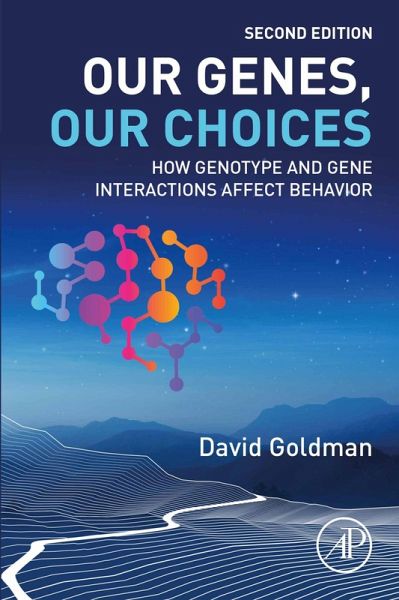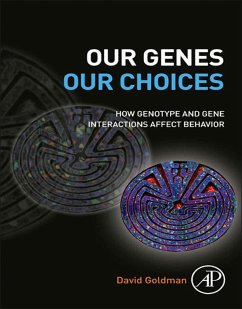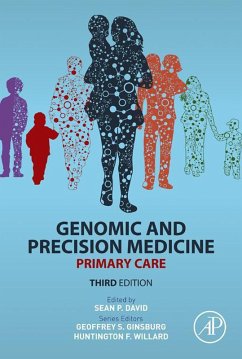
Our Genes, Our Choices (eBook, ePUB)
How Genotype and Gene Interactions Affect Behavior

PAYBACK Punkte
40 °P sammeln!
Our Genes, Our Choices: How Genotype and Gene Interactions Affect Behavior, Second Edition explains how the complexity of human behavior, including concepts of free will, derives from a relatively small number of genes, which direct neurodevelopmental sequences. Are people free to make choices, or do genes determine behavior? Paradoxically, the answer to both questions is "yes," because of neurogenetic individuality, a new theory with profound implications. Here, author David Goldman uses judicial, political, medical, and ethical examples to illustrate that this lifelong process is guided by i...
Our Genes, Our Choices: How Genotype and Gene Interactions Affect Behavior, Second Edition explains how the complexity of human behavior, including concepts of free will, derives from a relatively small number of genes, which direct neurodevelopmental sequences. Are people free to make choices, or do genes determine behavior? Paradoxically, the answer to both questions is "yes," because of neurogenetic individuality, a new theory with profound implications. Here, author David Goldman uses judicial, political, medical, and ethical examples to illustrate that this lifelong process is guided by individual genotype, molecular and physiologic principles, as well as by randomness and environmental exposures, a combination of factors that we choose and do not choose. Written in an authoritative yet accessible style, the book includes practical descriptions of the function of DNA, discusses the scientific and historical bases of genethics, and introduces the topics of epigenetics and the predictive power of behavioral genetics. In the decade since the first edition published, knowledge of genetic influences on the neurogenetic underpinnings of behavior has been transformed by genomic technologies. Genome-Wide Association studies, for example, have revealed that hundreds of genes influence vulnerability to psychiatric disease and innate predisposition to risk-taking behaviors. This new edition has been thoroughly revised to focus on free will and its neurogenetic origins. In addition, the use of polygenic scores for behavioral prediction are discussed in-depth, reflecting the GWAS (Genome-Wide Association Study) revolution and combined use of genetic predictors in polygenic scores. Sections on epigenetics are also substantially expanded throughout, better defined, and tied to neuroplasticity and gene-environment interaction. Figures and illustrations have been added or improved throughout, and disease nosology and terminology has been updated. - Updates on the previous edition which was the First Prize winner of the 2013 BMA Medical Book Award for Basic and Clinical Sciences - Poses and resolves challenges to moral responsibility raised by modern genetics and neuroscience - Analyzes the neurogenetic origins of human behavior and free will - Features expanded sections on the neurogenetic basis of free will, polygenic risk scores, and epigenetic influence over behavior, as well as improved figures and updated terminology
Dieser Download kann aus rechtlichen Gründen nur mit Rechnungsadresse in A, B, BG, CY, CZ, D, DK, EW, E, FIN, F, GR, HR, H, IRL, I, LT, L, LR, M, NL, PL, P, R, S, SLO, SK ausgeliefert werden.












